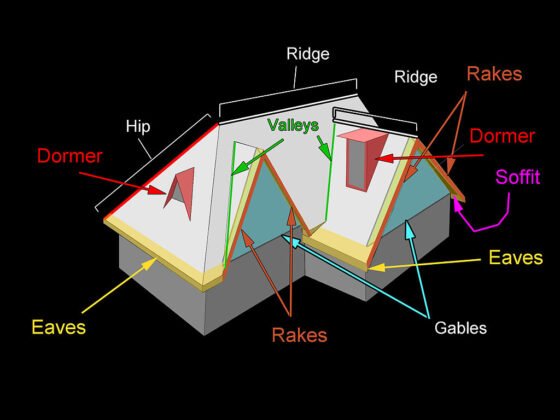Table of Contents Show
When you’re taking on a home renovation project, no matter the scale, it can be stressful. Hiring a professional, reputable contractor can take a lot of stress off you.
When you hire a contractor, while it may initially seem more expensive than managing a project on your own, if you can stay true to your timeline and avoid most problems, you’ll actually end up saving money.

A contractor can help you with everything from sourcing materials to connecting you with the best subcontractors.
A professional can also help you ensure that your construction project is safe and reduce the risk of accidents, which, if they occur, you may be liable for.
The big key in all of this is making sure you hire a contractor who you can trust and who has a good reputation.
So how do you do that?
Do You Need a Contractor or a Handyman?
Before you start the hiring process, figure out if you really need a contractor, or if you could make do with a handyman.
If it’s a large-scale project, you’re likely better off with a contractor. Also, if your project will include plumbing or electricity, you should consider a contractor. Another reason to hire a contractor is if your project includes taking down walls.
If you’re doing more minimal work, a handyman may be fine.
Depending on the scale and scope of your project, you may need permits from your city or county. You can check with the Department of Buildings where you live to make this determination, and if you need permits, again, consider going with a contractor.
Read Also:
Be Clear on What You Want and Your Budget
It’s going to be hard to find the right person for your job if you don’t even know what your job will entail. You should know exactly the work you need to be done, and what your budget is.
Give yourself some room for contingencies on your budget as well, because projects almost always go over what you expect they’ll cost.
Some things to ask yourself as you’re setting a budget include:
- Is your project a full-scale home remodel, or can you focus just on one room?
- Will you spend more on high-quality materials or are you okay with cheaper materials?
- Can you do the work yourself on any part of your project?
- Are you concerned about the return on your investment for your project?
Initial Considerations
If you’ve decided a contractor is right for your project, you’re going to have probably thousands of choices.
Start narrowing that list down by looking at contractors who may have worked with clients in your neighborhood.
In the projects in your neighborhood, are there are contractors who did work similar to what you need?
The best place to start your search is to talk to people you know, and if you don’t have any neighbors who have recently done projects, ask friends, family, and coworkers if they have recommendations.
There are also different types of contractors, so you need to know which is right for your project.
A general contractor can manage all the aspects of a project, but they hire subcontractors. This might be the best option if you’re working on multiple rooms.
A specialty contractor specializes in one specific type of project—for example, window or cabinet installation.
A design-build contractor usually works with their own architects who will create plans, and then the contractor will hire subcontractors to build the project.
Interview Candidates
One of the big things you should make sure you do before hiring a contractor is conducting interviews. Select at least three potential candidates to interview, but no more than that because then it may get overwhelming for you.
You want to have a set of questions you ask, and in addition to the content of the answers, you also want to make sure the contractor is a good communicator.
As you interview contractors, spend time in your home with them. Listen to what they’re saying. You want someone who comes off as a problem solver and a person who can offer solutions.
After an interview, then you can officially check references. Ask questions of their references, such as whether the contractor was on time and budget, whether they were pleased with the work, and if there is anything they might have liked to see done differently.
After an interview, contractors will give you a bid, and if a bid seems too low, it probably is.
Insurance and Certification
Insurance and certifications are a big part of the puzzle when you’re choosing a contractor. You want to make sure your contractor has the right insurance and certifications.
A contractor should at a minimum, have general liability insurance and workers’ compensation.
General liability covers the cost of any injuries or damage that might happen during your home project. Workers’ compensation can cover your contractor if they get hurt on your property, so they don’t sue you.
A good contractor may also have different certifications or group memberships that could be helpful for your project. For example, a contractor might be a member of the National Association of Home Builders.
You should also make sure that you get everything in writing when you decide on a contractor. You want a legal agreement that includes the following:
- A payment schedule and bid price
- Specifics regarding the anticipated scope of work
- Change-order clause
- A written list of procedures that will be followed for a close-out
- Limited warranty
- Dispute resolution clause
- Waiver of lien to prevent subcontractors and suppliers from putting a lien on your house if the contractor doesn’t pay their invoices
Finally, when you’re hiring a contractor you want to check references and you want to find someone that you feel like you can get along with. Go with your gut instinct because your contractor is someone you need to trust and feel comfortable communicating with on a regular basis.










